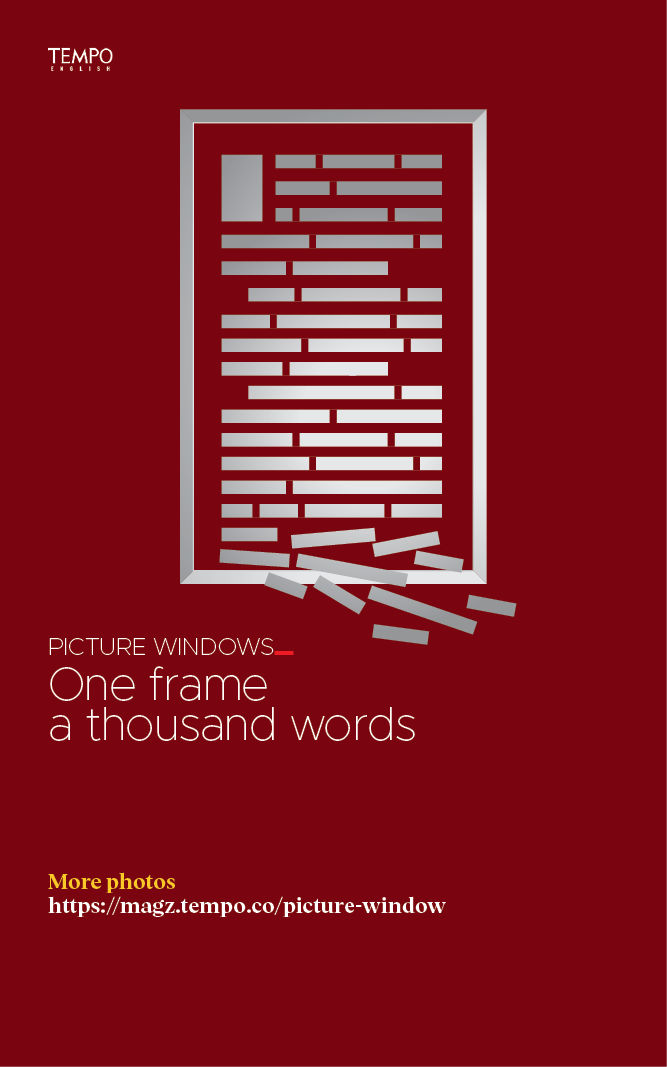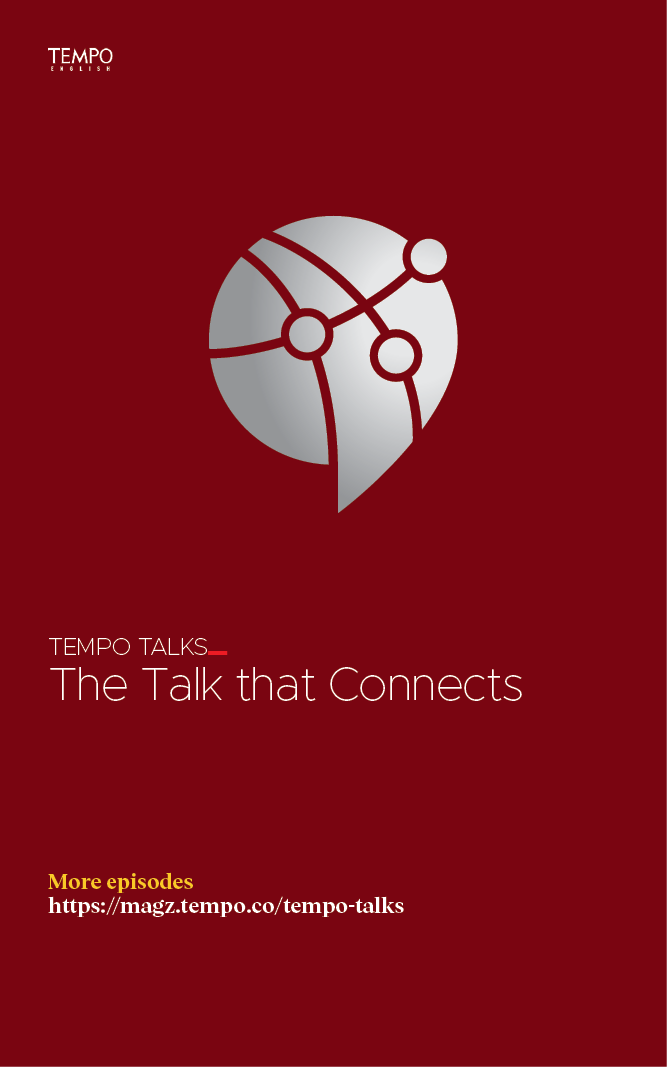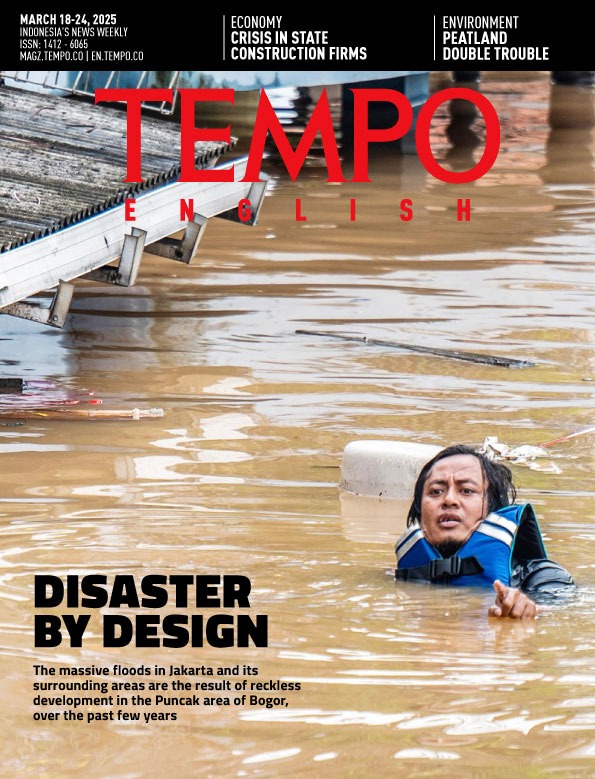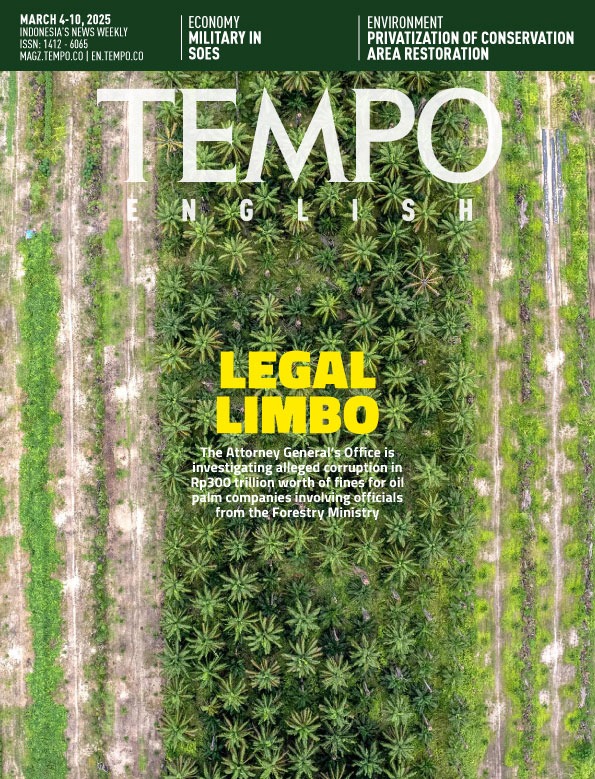July 12, 2016 edition
Sidelines
We are familiar with this picture that seems to come from another continent: the poet, exiled from Kallipolis, threadbare, smelly, homeless, an insomniac, living with no schedule, and producing things whose function is unclear: poems. He rarely finds place within a structure. He is outside. Even if he wanted to return, Kallipolis would not take him back. Within the ideal city of Plato's imagination, the poet is an element whose function is only to praise the herowhich we know does not work because heroes are figures who freeze in obligatory odes. So there is some truth, albeit slightly exaggerated, in Alfred de Vigny's words of 1832, that poets are "the race always cursed by the powerful of the earth."
Read More
Interview
The amended 2016 state budget and the law on tax amnesty were passed by the House of Representatives (DPR) on June 28. Vice President Jusuf Kalla said the tax amnesty was the government's attempt to cover the 2.48 percent deficit in the budget. The global economic crisis has caused state revenues to decline, including those from taxes. In response, the government decided to slash the budget by Rp50 trillion.
Read More
Column
Economy
Manggi Habir
Ramadan is normally a month of peaceful reflection. Instead, this year's holy month witnessed the unfolding of a series of worrying events, raising further concern and uncertainties across global markets. The impact of the United Kingdom's (UK) unexpected departure from the European Union (EU), which hurt the stock market and the pound sterling, has yet to fully play itself out.
Read More
Opinion
Like threading a needle, the government must act cautiously when it attempts to release the seven Indonesians now held hostage in the southern Philippines. It must to use all its powers to rescue the hostages held captive by Abu Sayyaf, a splinter group of the Moro National Liberation Front, the separatists who have already struck a truce with the Philippine government. Clever negotiations are also required to secure the hostages release without paying any ransom.
Read More
More Articles
Letters
Indicator
Outreach
A Mandate from the Common Folks
Dompet Dhuafa, or 'Wallet of the Poor', collects and distributes alms to empower people in remote places like Lombok and Jeneponto. Improvements in the economy, education and health are the main objective.
Rahman Akbar's happiness spiked this Lebaran holiday. The harvest this yearfrom dozens of hectares of farmswas abundant. Last year, he was only able to make a profit from his carrot, tomato, red and green bell pepper and strawberry nursery. This year, his surplus comes from the bell peppers and zucchinis, with rocketing sale prices at that. One kilogram of carrots sold for Rp10,000 at the Sembalun central market. Compare that to the profitable prices of peppers and zucchinis at Rp35,000 per kilogram. "Not bad. I earned more for Lebaran," Akbar, a 27-year-old farmer from Sembalun, East Lombok, told Tempo English three weeks ago.
Dompet Dhuafa, or 'Wallet of the Poor', collects and distributes alms to empower people in remote places like Lombok and Jeneponto. Improvements in the economy, education and health are the main objective.












